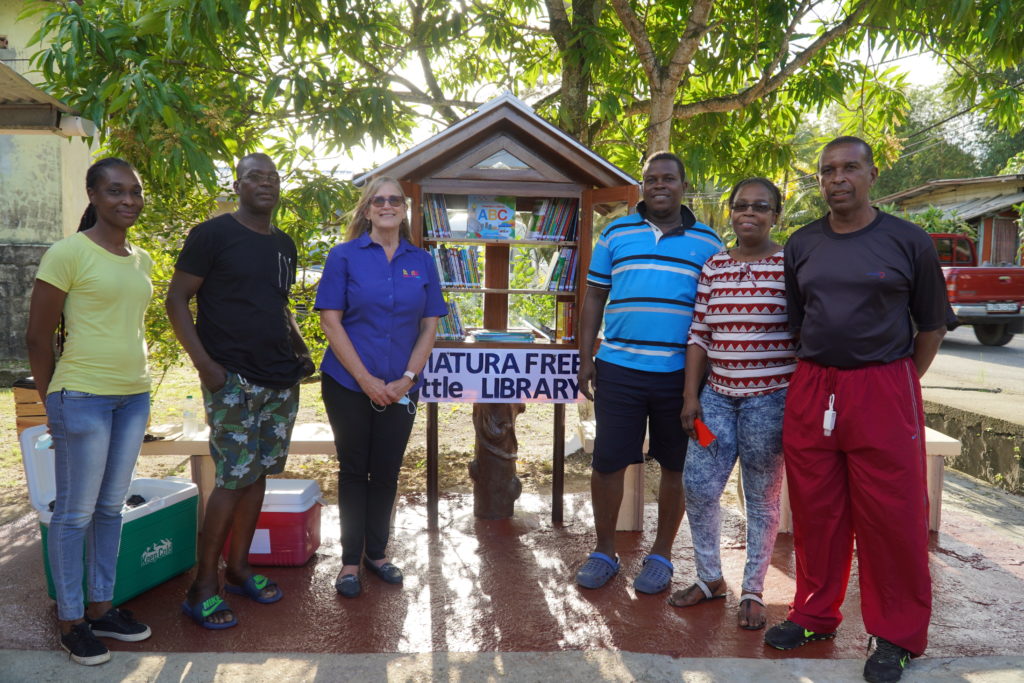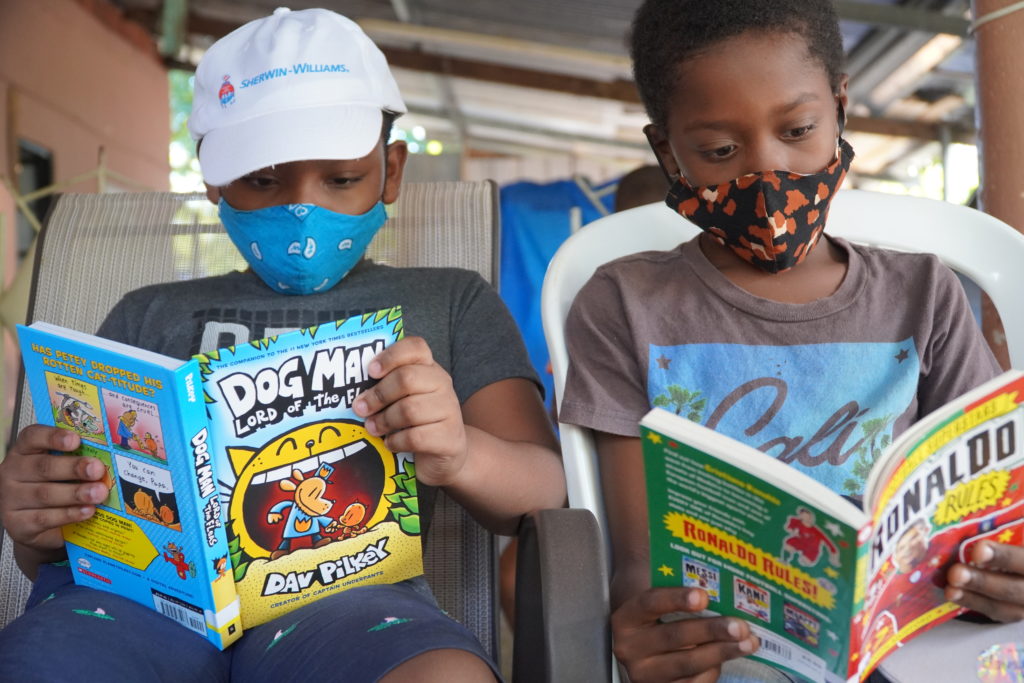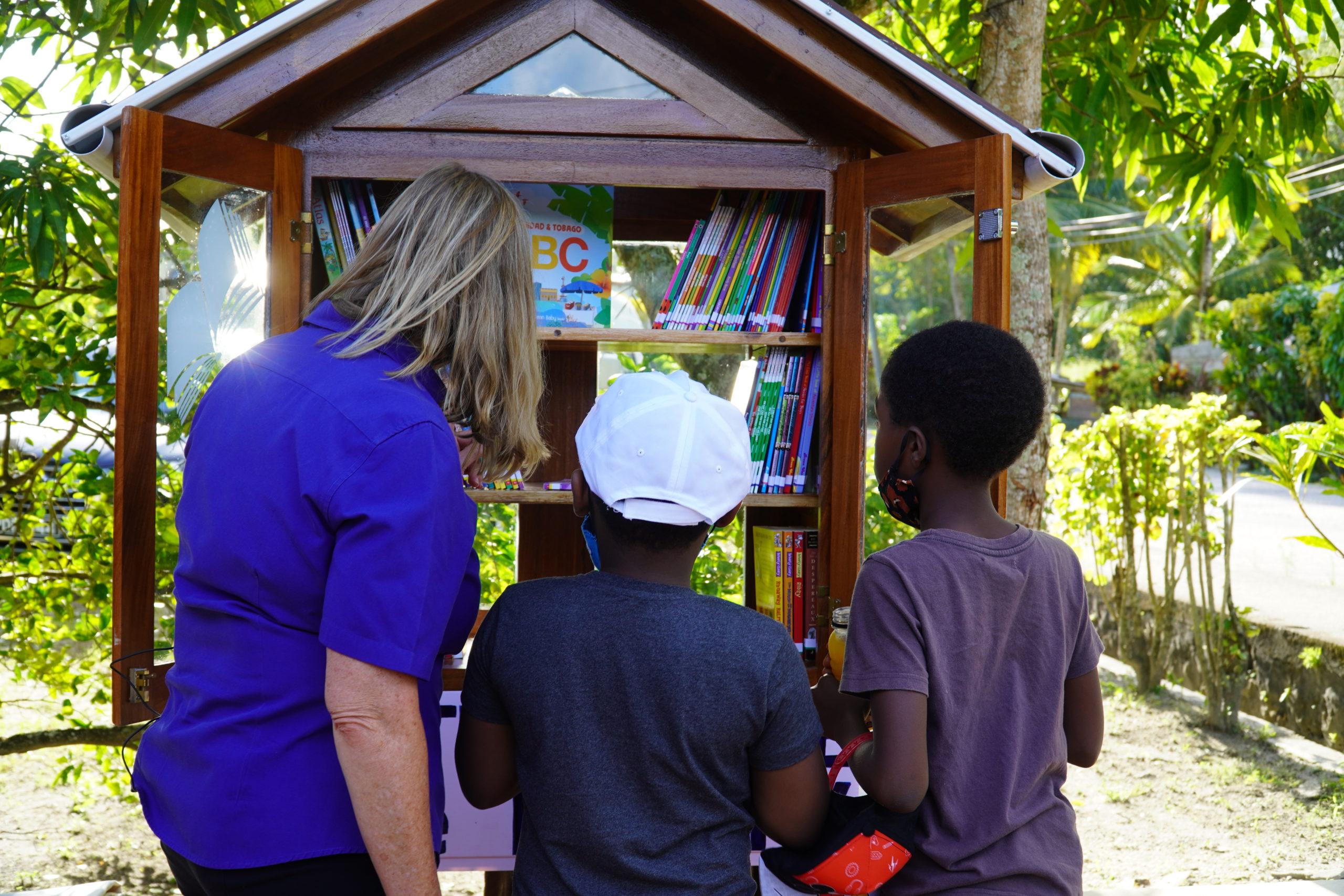The community of Matura now has its own Little Free Library (LFL). In partnership with the children’s literacy NGO, Let’s Read, the little library was launched on 28 February. Many members of the community and their children attended the launch to mark the occasion. The LFL is a book-sharing system and aims to reach children 14 years and under. Building the small, but sturdy library was a community effort, with Matura-based craftsman Calvin Matthew sourcing wood at a local lumber yard and building the structure himself.
Since then, Let’s Read has received a few requests in the Toco region for little libraries. The organization reports that the next Little Free Libraries will be built in the communities of Toco, Grande Riviere, Cumana, L’Anse Noire, and Matelot. The Toco Times spoke with Let’s Read founder and director, Alison de la Bastide about Matura’s new little library, and more.
Toco Times: How did the Matura’s Little Free Library project come about?
Alison de la Bastide: The Little Free Library idea has been promoted on Let’s Read’s Facebook page in the past but it became more of a focal point with the onset of COVID restrictions. Students have been locked out of their school library for over a year and though many public libraries are now accessible, for thousands of children, access to books is not guaranteed. Let’s Read was also unable to continue its mission of re-establishing public primary school libraries. So it is for these reasons that we decided to promote the idea and partner with communities [like Matura] to establish Little Free Libraries — making books easily accessible to children all over the country, especially in remote areas.

TT: How does the free library work? Particularly, how would the library impose the honour system?
AB: Typically a Little Free Library is a free book-sharing box where anyone may take a book or share a book within a neighbourhood or community. It functions on the honour system and you do not need to share a book in order to take one. An honour system is a philosophical way of running the library on trust, honour, and honesty. It is a system whereby the community members are trusted to abide by the guidelines of their LFL without constant supervision or surveillance.
TT: How often would the library be replenished, and who is in charge of doing so?
AB: Let’s Read’s Little Free Library prototype is tailored to the requirements of each community or neighbourhood. Let’s Read donates a diverse selection of new and gently used children’s books as well expertise and ongoing guidance. Little Free Library plans and blueprints are supplied by Let’s Read or accessed through the Little Free Library website, littlefreelibrary.org. It is Let’s Read’s expectation that each community will utilize their human expertise and material resources to build a book-sharing box structure. Each community will require a member to volunteer as the LFL Steward. This person will be the key local contact for users, donors, and the Little Free Library support system. Let’s Read will work with the LFL Steward to decide on where to legally and safely install the library, how the library should work, how to spread the word, and tips to handle vandalism, etc. The Little Free Library Steward is provided with a Steward’s Guide. **Matura’s LFL steward is Ms Doreen Matthew.
TT: Can people/children take books out of the library at any time?
AB: Each community will decide on LFL access times but to use Matura as an example, their LFL is open seven days a week from 7 a.m. to 6 p.m.
TT: Any advice for parents and guardians about encouraging children to read?
AB: The emphasis is on making reading enjoyable (reading for pleasure) by providing a variety of books so everyone can find something they love. Research shows that reading for the joy of it has powerful, measurable real-life benefits that can transform lives. For some of our children, their first and only experience with reading is through textbooks, workbooks, and assigned readers. Reading should be fun, not just a compulsory part of the curriculum. Unless it is something that excites children, they’re unlikely to become eager readers for life. Too many of our students develop a hatred for reading and when that happens, their educational careers are imperilled. We want to inspire, not pressure.

Here are some tips to BOOST READING FOR PLEASURE
- Value all reading equally, especially at early/reluctant stages. The more children enjoy it, the more they will do it and the better they’ll become. Show positive interest in their book choice and support topics that interest them: fiction, graphic novels, non-fiction, funny books, cooking books, anything.
- When your child is keen and confident, gently encourage wider choice but always allow the return to favourite books or personal choices. There’s nothing wrong with comfort reading.
- Give huge choices. Libraries are ideal because they’re free, so not enjoying a book won’t matter. Young readers must not have pressure to like a particular book.
- Don’t force anyone to finish a book they’re not enjoying (when reading for pleasure.)
- We know reading is good for us but don’t treat it like spinach. Different readers want different things but “it’s good for you” is generally a poor or short-term motivator.
- Plan reading aloud time for the family. The habit of reading before bed is perfect. Parents and caregivers become an advertisement for the pleasure of print, read with prosody!
- If your child sees you loving reading, it helps them aspire to it.
**The LFL steward can be reached for more information about Matura’s LFL.









Be First to Comment